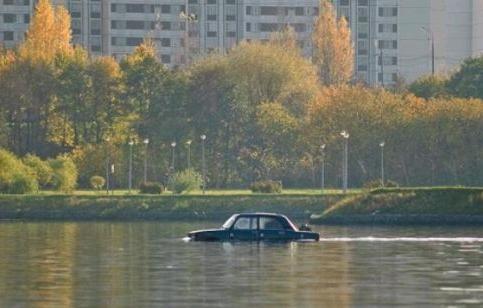
“We are not ready to sign under the plans to cut 22-25% as part of a direct continuation of the Kyoto Protocol”, declared Russia’s environmental diplomat Oleg Shamanov.
This despite the fact that Russia remains the only developed country ALREADY operating at below-1990 emissions levels, because of the post-Soviet industrial collapse.
It has thus benefitted handsomely from Kyoto, under which agreement “the fall in production has given the country a vast and potentially valuable supply of tradable carbon offsets”, worth tens of billions of dollars.
But, according to analysts, this credit surplus is also “a major stumbling block to reaching an agreement in Copenhagen on a new treaty. Environmentalists and the European Union wish to limit Russia’s opportunities to “export pollution” by selling off the rights to emit carbon”.
Yet because of these potentially lucrative carbon offsets, as well as some theoretical possibilities for new shipping and trading routes opening up as a result of glacial melt, “there is a widespread opinion among the Russian ruling elites that global warming could be beneficial to Russia”.
Such a blase attitude to climate change is dangerous for the world, but no less dangerous for Russia itself, which is poised for some uniquely catastrophic outcomes of global warming. 
Just one case of foreshadowing is the struggle of Yakutsk natives as the ground literally melts beneath their feet, compellingly illuminated in today’s Guardian.
And every extra hour that the Russian government dithers about emissions benchmarks and salivates at the prospects of carbon trading windfalls, entire Siberian towns will continue to sink inexorably into the rapidly melting permafrost.
Engaging climate change can carry positive externalities for society as a whole. For example, Aysha Ghadiali at Resources for the Future shows that green policies are optimised when implemented in ways that mobilise and empower women. Because “women were more likely than men to support government policies to reduce emissions, such as carbon taxes, [and] to buy sustainable products with a Fair Trade seal”, good green policy is also good social policy.
But how to persuade the new Siberian sunbathers enjoying some global-warming-caused respite from the savage winters that it is a good thing to return to living in the coldest place on earth?